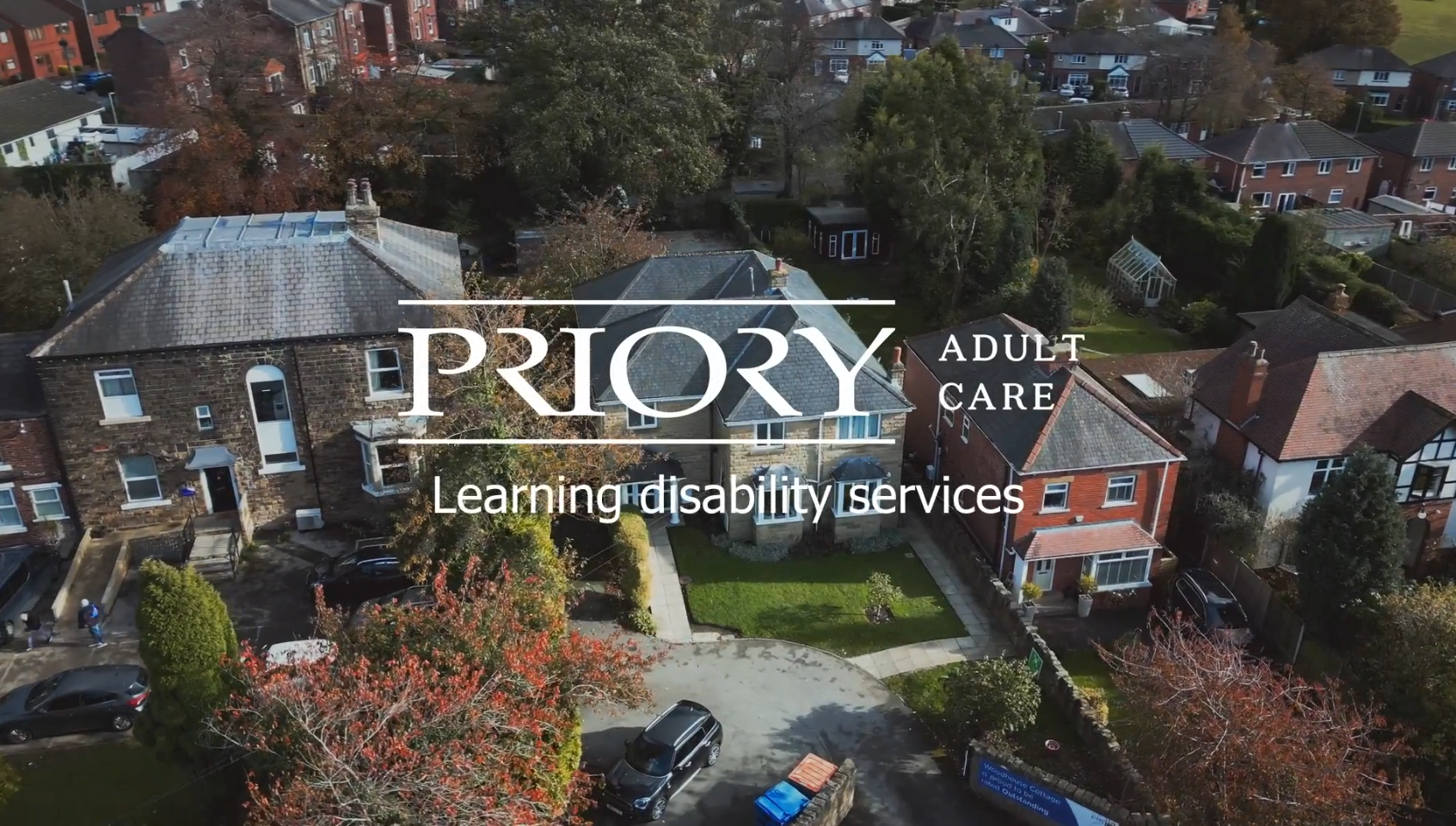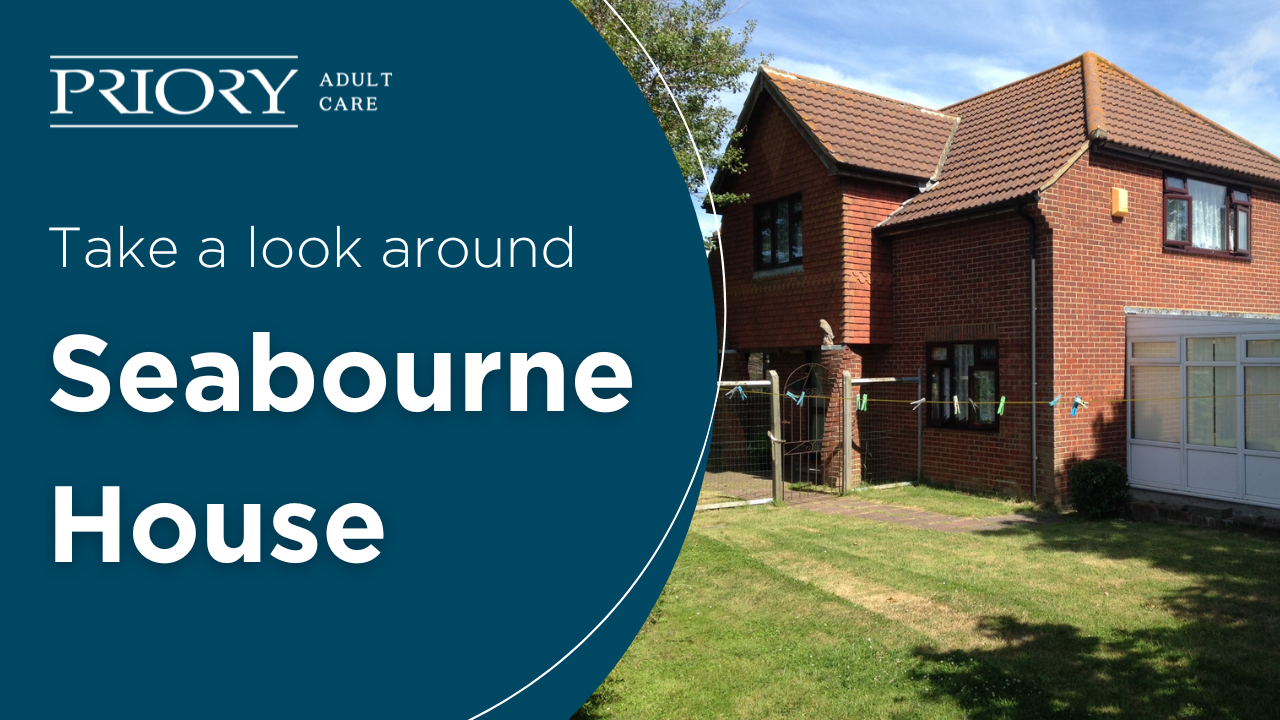About this location
Seabourne House is located in the village of Dymchurch, in Kent. It offers residential support to four females who are autistic or have a learning disability. We are on a quiet cul-de-sac, just five minutes from a Blue Flag beach.
Our team are dedicated to promoting independence within a homely atmosphere so our residents feel a true belonging to their home.
We can also support those who have:
- Difficulties with communication
- Down’s syndrome
- Epilepsy
Services at a glance
Contact us
Click here to enable this content
About our service
Our facilities and environment
The large detached, communal house has lots of space and offers a relaxed, homely environment. In summary, we offer:
- A large lounge with plenty of seating
- Kitchen and dining room
- Communal bathroom
- Conservatory
We also have our own garden, complete with:
- Secure fencing
- Lawn
- Patio
- Communal seating
In addition, we have a site vehicle to help us to meet the needs of the people we support.
Our bedrooms
There are four bedrooms, two are on the ground floor bedrooms and two are on the first floor. Two of the bedrooms have en-suite facilities, containing a shower. One of the bedrooms has a walk-in wardrobe.
All of our bedrooms are comfortable, welcoming and can be personalised to individual tastes.
Our approach to support
Everybody who lives at Seabourne House has their own person-centred care plan, which is co-produced with input from the individual, their family members and professionals involved in their care. We aim to help everyone in our care to make their own choices about the support they receive. This may include support in a number of areas, such as going out in the community, personal care, cooking and cleaning, and maintaining family relationships.
Our support approaches at Seabourne House include:
- Positive behaviour support (PBS)
- Occupational therapy
- Nursing
- Physiotherapy
- Speech and language therapy
- Psychology
We also have support from a local multidisciplinary team to offer some of these services. In addition, we use tools such as the Outcomes Star™ and Active Support to support our residents to achieve their goals.
The lengths of the placements that we offer at Seabourne House can be medium or long-term residential, depending on the needs of each person.
Activities
Everyone who lives at Seabourne House has their own personalised activities planner and are encouraged to take part in activities which are meaningful and fulfilling to them. Our dedicated team organise a variety of activities at the home, as well as out in the community.
We focus on supporting our residents to grow their independence. For some people, this may mean developing their daily living skills within the home. For others, this could be accessing work or educational opportunities in the local community.
Exclusion profile
- Males, as we are a female only home
Pathways
Through our network of healthcare, residential and supported living facilities, we provide unique care pathways which help the people we support to progress towards greater independence. Every individual we support is provided with a bespoke pathway plan, tailored according to their individual needs. We aim to ensure that each person is supported to live a fulfilling and active life in the community. At Seabourne House we have close links with Priory Supported Living Kent.
Our team
Our highly experienced team consists of:
- Service manager
- Deputy manager
- Support workers
- Senior support workers
Our team receive specialist staff training, designed to meet the needs of each individual we support. This includes epilepsy awareness training and Down’s syndrome training.
A message from our site leader

Seeing the ladies at Seabourne living a fulfilled life and experiencing many activities within and outside of the home is very rewarding for our staff and those who visit our service
Seabourne House’s site leader
Comments from our residents and their family and friends
I like Seabourne, especially my room, and I really like the staff
Family and friends FAQs
How does home leave work?
We support our residents to attend family events and visit their family homes. We understand family connections are important to many people, and will do whatever we can to facilitate these bonds being maintained.
Can friends and families visit?
Family and friends are welcome to visit, although we do ask visitors to tell us in advance. Unfortunately, family members cannot stay overnight.
Will I be involved and kept up to date with the progress of my loved one’s care and support?
Yes, we strive to keep the loved ones of our residents involved in their care through regular catch-ups either in person or via telephone. We will work with families on an individual basis to figure out what communication style works best.
Will my loved one be able to have a phone or call me?
Everyone who stays with us are supported to call their loved ones any time, via phone or video call. Family and friends are also able to call as often as they like. In addition, we can support our residents to get their own mobile phone, where appropriate.
What are the bedrooms like?
All our bedrooms are all fully furnished, and some of the items are fitted and cannot be removed. We encourage residents to decorate with their own belongings and décor, and can support with this.
Are external doors kept locked?
Our external doors are only locked at night as you would your own home. Of course, we use conduct thorough assessments to ensure the right safety measures are in place for each individual.
What do residents eat and how do meal times work?
Residents prepare their own meals, which enables them to develop their independence. We can support if they need any help. Special dietary requirements are catered for, and we can help provide alternative meals.
How does laundry work?
Residents are given help to do their own laundry, which promotes the developing of independent living skills. Clean clothes and bedding is provided at all times.
Who does the housekeeping and domiciliary tasks?
Our residents clean their rooms themselves and there is a rota for tasks around the house. Any concerns are discussed in our monthly resident meetings. Our team are on-hand to help residents with domestic tasks, where this is required.
Is there anything they can’t bring or have?
Residents are not allowed to bring illegal substances onto the premises. Other items will be discussed on a case-by-case basis.
How do activities work?
We deliver a timetable of activities both in-house activities as well as in the community. Residents are helped to choose what they want to do. We offer a varied calendar of activities, taking into account everyone’s needs, preferences and wishes, and this may include group trips out as well as activities arranged around individual hobbies.
How will residents be supported with their behavioural needs?
We focus on really understanding the needs of our residents. We have a key worker system in place, which ensures everyone has a core staff team that they feel comfortable with. Any changes in behaviours will be quickly picked up, care plans will be updated to reflect this, and the right support to meet changing needs will be put into place.
Do residents and families have an input into the care plans?
Families and everyone involved in supporting residents are involved with the care plans, where in line with residents’ wishes or best interests. Sometimes our residents need help with communicating their wishes so our staff work closely with them to ensure they have a voice.
What are the car parking facilities?
There is room for three cars and on-street parking available.
What is the smoking policy?
We currently do not support anyone who smokes, but if this were to change, we would require the person to smoke outside of the house, including vapes.
What are your fees and how are they funded?
Our fees can vary, and are based on an assessment of each individual's needs. Many people are eligible for financial help towards the cost of support, and this funding can be accessed by contacting your local authority. Once funding has been agreed, we will work with your local care team to put together a bespoke package of care. Please note, referrals for NHS or Local Authority funded services must come from a referring organisation.
How to make a referral
Our service provides high quality support to people with varying levels of need. Referrals can be made through the individual’s social care team or, if relevant, their local health authority. If you are a professional looking to make a referral, please call us or fill in our enquiry form.





